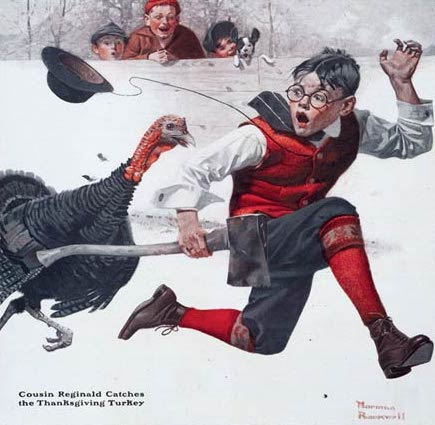
 Like many people who are fans of Robert Farrar Capon, my introduction to him and his work was through The Supper of the Lamb: A Culinary Reflection. I first read the book over ten years ago when it was being passed around a small group of women in my (at the time) small church who knew about good books. I’ve read it several times and tend to give copies away to friends who need this book. (I think everyone needs this book, so I’ve given away a lot of copies.)
Like many people who are fans of Robert Farrar Capon, my introduction to him and his work was through The Supper of the Lamb: A Culinary Reflection. I first read the book over ten years ago when it was being passed around a small group of women in my (at the time) small church who knew about good books. I’ve read it several times and tend to give copies away to friends who need this book. (I think everyone needs this book, so I’ve given away a lot of copies.)
Capon opened my senses up to food and life and faith and some of the connections that exist between the three. I was also in the early stages of coming to appreciate “the ordinary” so in addition to the beautiful quotes about onions and butter, sentences like this struck me, too: “Only miracle is plain; it is in the ordinary that groans with the weight of glory.”
Soon after finishing The Supper of the Lamb in 2007, I needed more Capon. I tracked down some of his books about the parables and found a guide on my faith journey whose words gave me a sense of rest and wholeness that few others have provided. Passages like this from Kingdom, Grace, Judgment: Paradox, Outrage, and Vindication in the Parables of Jesus made me catch my breath. They still do. Capon writes:
It’s all bizarre. At the end of his parables, Jesus goes ahead and acts out what he has been talking about from the beginning. In his passion, death, resurrection, and ascension he manifests in his own person the non-transactional mystery of a kingdom that has always disposed all things mightily and sweetly by grace…
[Jesus’ parables] are invitations to trust the passion, the inaction of the Incarnate Word of God in whom all things are already made new.
And that is bizarre because just as in the spoken parables, nothing much is tidied up in the temporal order of things—just as the lastness, lostness, leastness, and death of Jesus’ parabolic characters are shown not as inconveniences that they are saved from but as disasters they are saved in.
Capon’s focus on the lastness, lostness, and leastness of Jesus and the way of Christians made Capon one of my mentors and kindreds as I tried to figure out what it means to live in light of the gospel. It still does.
So it was with much anticipation that I started reading More Theology & Less Heavy Cream: The Domestic Life of Pietro and Madeleine. This is a recently published collection of essays from Capon featuring him and his wife’s alter-egos, Pietro and Madeleine.
I admit it took me a good 20 or so pages to connect with this book. Although I was entertained from the first page, Capon’s brilliance and theology weren’t evident to me until I settled more into the book. (That probably says more about me than it does about him.)
A few theological topics Capon touches on in More Theology & Less Heavy Cream in-between the narratives about various dishes he loves (Chinese) and doesn’t love (traditional Thanksgiving fare), include commentary on the state of the Church and the role of the State. Capon even writes about some issues that are still applicable in today’s political climate. He says:
What I’m really saying, though, is that all the brouhaha raised by Christians in the name of enforcing the moral law is hazardous to the health of the Gospel. After this most recent presidential campaign, for example, I defy you to find more than three non-Christians in the country who would even suspect that the Gospel is about forgiveness rather than enforcement—or for that matter, that it has any kind of good news at all.
Ouch.
Capon is still concerned about the Gospel. He still wants Christians (and non-Christians) to hear and believe and live in light of the Good News.
Something else I appreciate about this book is the way “Pietro” and “Madeleine” interact. It’s obvious there is mutual respect, mutual love, and a marriage infused with a healthy dose of humor as a side dish to all of the delicious meals prepared and shared in their home. Although these are “alter-egos,” I suspect Capon and his wife had plenty of interactions similar to those in More Theology & Less Heavy Cream.
This book is less intense than other books I’ve read by Capon, but it’s refreshing to see him write with a more playful spirit while still imparting deep truths that pertain to life and love and faith. More Capon, regardless of the style, is a good thing. I hear there are additional Capon books coming from Mockingbird in the future. I’ll be waiting patiently to see what he serves up next.

COMMENTS
4 responses to “More Robert Farrar Capon & Less Thanksgiving Turkey”
Leave a Reply













This is beautiful, Charlotte!
Thanks, Josh!
[…] Donlon wants more Robert Farrar Capon and less Thanksgiving turkey: “Capon opened my senses up to food and life and faith and some of the connections that exist […]
[…] Donlon asks for more Robert Farrar Capon goodness and less Thanksgiving turkey: “Capon opened my senses up to food and life and faith and some of the connections that exist […]